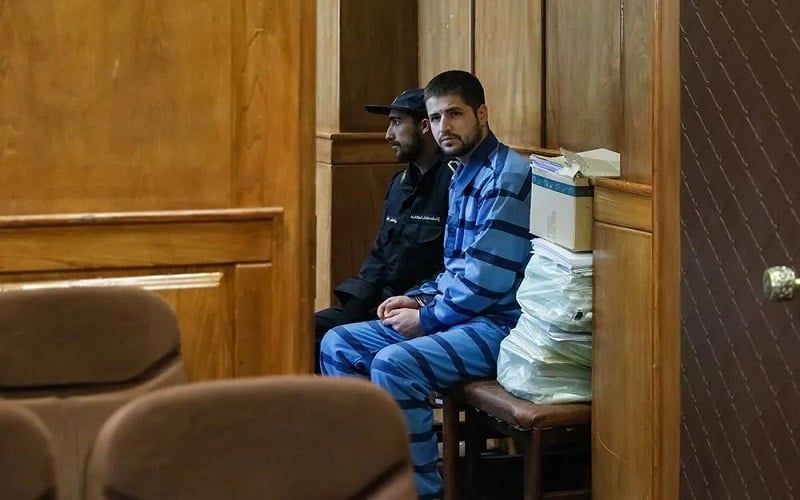Iranian protester Mohammad Ghobadlou, diagnosed with a mental health condition, has been executed over the alleged intentional murder of local official Farid Karampour Hassanvand during the 2022 mass demonstrations, according to the Iranian judiciary’s news agency, Mizan.
The execution occurred after 487 days of judicial review, stemming from accusations that Ghobadlou ran over the official during a protest in Robat Karim, Tehran province.
Judge Abolqasem Salavati, previously sanctioned by the United States for issuing harsh sentences to activists, journalists, and political prisoners, imposed two death penalties on Ghobadlou.
One was for “corruption on Earth,” issued by a Revolutionary Court and upheld by the Supreme Court, and the other for murder, issued by a criminal court in Tehran province. Amnesty International criticized the proceedings, citing unfair trials and inadequate mental health assessments.
Despite Mizan reporting the suspension of the “corruption on Earth” death sentence earlier this month until the intentional murder charge was investigated, Ghobadlou’s lawyer, Amir Raesian, claimed he was not notified about the ruling. Raesian called on Mizan to release more information on the execution, urging transparency.
Ghobadlou had been under psychiatric supervision since the age of 15 for bipolar disorder, according to Amnesty. International law prohibits the death penalty for individuals with mental disabilities, raising concerns about the violation of human rights standards.

Mahmood Amiry-Moghaddam, the director of Iran Human Rights, described Ghobadlou’s execution as an “extrajudicial killing” and called for accountability from Iran’s leadership.
At least eight protesters linked to the 2022 demonstrations, triggered by the death of Mahsa Amini, have been executed. The protests led to a severe crackdown, mass arrests, and hasty sham trials, drawing global condemnation and sanctions from the United States.





